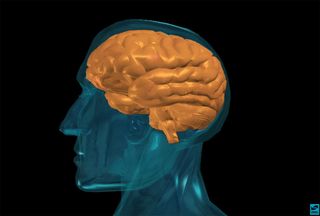Memory Definition & Types of Memory

For us to recall events, facts or processes, we have to commit them to memory. The process of forming a memory involves encoding, storing, retaining and subsequently recalling information and past experiences.
Cognitive psychologist Margaret W. Matlin has described memory as the “process of retaining information over time.” Others have defined it as the ability to use our past experiences to determine our future path.
When they are asked to define memory, most people think of studying for a test or recalling where we put the car keys. However, memory is essential in our everyday lives. We would not be able to function in the present or move forward without relying on our memory.
How we form memories
The process of encoding a memory begins when we are born and occurs continuously. For something to become a memory, it must first be picked up by one or more of our senses. A memory starts off in short-term storage. We learn how to tie our shoe, for example. Once we have the process down, it goes into our long-term memory and we can do it without consciously thinking about the steps involved.
Important memories typically move from short-term memory to long-term memory. The transfer of information to long-term memory for more permanent storage can be happen in several steps. Information can be committed to long-term memory through repetition — such as studying for a test or repeatedly taking steps until walking can be performed without thinking — or associating it with other previously acquired knowledge, like remembering a new acquaintance Mrs. Emerald by associating her name with an image of the green jewel.
Motivation is also a consideration, in that information relating to something that you have a keen interest in is more likely to be stored in your long-term memory. That's why someone might be able to recall the stats of a favorite baseball player years after he has retired or where a favorite pair of shoes was purchased.
We are typically not aware of what is in our memory until we need to use that bit of information. Then we use the process of retrieval to bring it to the forefront when we need to use it. Again, much of this recall happens without having concentrate on it — particularly with common tasks such as shoe tying — but there are other types of memories that take more effort to bring to the forefront.
Memory loss is often associated with aging, but there are a number of things that can trigger short- and long-term memory loss, including injury, medications and witnessing a traumatic event.
Types of memory
While experts have varying definitions for short-term memory, it is generally described as the recollection of things that happened immediately up to a few days. It is generally believed that five to nine items can be stored in active short-term memory and can be readily recalled. Patients who suffer from short-term memory loss can't remember who walked into the room five minutes before, but can remember their childhood friend from 50 years ago.
Implicit memory is sometimes referred to as unconscious memory or automatic memory. Implicit memory uses past experiences to remember things without thinking about them. Musicians and professional athletes are said to have superior ability to form procedural memories.
Procedural memory, which is a subset of implicit memory, is a part of the long-term memory responsible for knowing how to do things, also known as motor skills. You don't have to delve into your memory to recall how to walk each time you take a step.
Some examples of procedural memory:
- Playing piano
- Ice skating
- Playing tennis
- Swimming
- Climbing stairs
While implicit memory requires little if any effort to recall, explicit memory — sometimes referred to as declarative memory — requires a more concerted effort to bring the surface. Declarative memory involves both semantic and episodic memory.
While most people can tick off the days of the week from the time they are in grade school — which is implicit memory — it takes explicit memory to remember that your mother's birthday is next Wednesday.
Semantic memory is not connected to personal experience. Semantic memory includes things that are common knowledge, such as the names of states, the sounds of letters, the capitals of countries and other basic facts that are not in question. Some examples of semantic memory include:
- Knowledge that the sky is blue
- Knowing how to use a knife and fork
- Remembering what dog is
- Recalling that President Kennedy was assassinated on Nov. 22, 1963
Episodic memory is a person's unique recollections of a specific event or an episode. People are usually able to associate particular details with an episodic memory, such as how they felt, the time and place, and other particulars. It is not clear as to why some memories of events in our lives are committed to memory, while others don't get recorded, but researchers believe that emotions play a critical role in what we remember.
Some examples of episodic memory:
- Where you were and the people you were with when you found out about the Challenger space shuttle disaster
- Your beach vacation last summer
- The first time you traveled by plane
- Your first day at a new job
- The restaurant you went to on your first date with your spouse
Related:
Sign up for the Live Science daily newsletter now
Get the world’s most fascinating discoveries delivered straight to your inbox.
Kim Ann Zimmermann is a contributor to Live Science and sister site Space.com, writing mainly evergreen reference articles that provide background on myriad scientific topics, from astronauts to climate, and from culture to medicine. Her work can also be found in Business News Daily and KM World. She holds a bachelor’s degree in communications from Glassboro State College (now known as Rowan University) in New Jersey.
